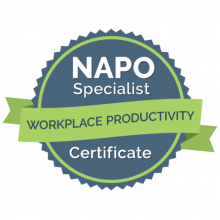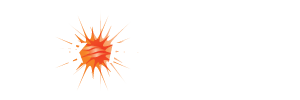Helping others is admirable. However, it should be done judiciously, or you could risk compromising your own productivity and success.
Lena Dunham (creator of Girls) once said: “Don’t take it personally when I tell you ‘No’. I’m using it on everyone this year.” Instead of making another potentially disappointing New Year’s resolution, I’m encouraging you to adopt the word “No” as your word of the year. It’s such a small, simple word – one of the first words toddlers learn, and use all too often, but often difficult for adults to say. Although it may be uncomfortable, it is vital to your productivity that you master the art of saying “No”.
Saying “No” enhances your productivity by:
1. Establishing healthy boundaries
If you self-identify as a ‘people pleaser’, you likely feel stressed-out and overwhelmed at work. Saying “Yes” too often compromises your ability to focus on your core objectives and inhibits your ability to do your job well. It can also earn you a reputation of being someone to be dumped upon. Saying no helps you establish boundaries and gives others clarity about what to expect from you.
2. Protecting your precious time and energy
Focus on your own goals by saying “No” to others’ requests as often as possible, especially if the requests don’t support your goals. Protect your time, make sure you do your job well, and then help others if you have time and energy to spare. Like they say on airplanes: put your oxygen mask on first, and then assist others in need of help. If you’re lacking ‘oxygen’ at work, your depletion serves no one well.
3. Minimizing stress and resentment
Saying “Yes” when you really want to say “No” can bring a temporary, yet false sense of being helpful. Catering to others’ needs over your own can lead to frustration, burnout, and resentment. Remember, when you’re stretched too thin, overwhelmed, and stressed-out over how to get your job done, you’re really not helping anyone – especially yourself.
4. Saying “No” as a form of delegation
If you have trouble saying “No”, try thinking of it in terms of delegation, instead of rejection. This shift in thinking may make it roll off your tongue more easily.
Whenever possible, but only when it makes sense, say no to requests for your time. My children’s teachers have a motto: “Ask 3 before me”. If the students have a problem, they need to either figure it out on their own or ask three of their classmates before soliciting help from the teacher. This teaches them a sense of self-reliance, and also discourages building a habit of always running to the teacher for help.
At work, delegating can have the same effect. It can help discourage people from taking the easy way out and instead encourage them to figure things out on their own or with the help of a variety of other resources. Having a sense of self-reliance is a cornerstone of good productivity. It also helps people stretch and grow in their positions, and may even give them a chance to shine.
How to say no gently and effectively:
Say it quickly.
Don’t put off your answer hoping the requester will forget they asked you. Give your answer right away so you can move on (think ripping off a band-aid).
Be direct.
Say no clearly and with confidence. It’s not necessary to offer a lengthy reason for your response. Something as simple as “I appreciate your situation and I’d like to help, but my schedule is full at the moment.” will do.
Propose another time to help.
If you don’t have time when requested, but you do want to help, suggest offering to help at a later date. You can say “I’m in the middle of a major project right now, but I’ll have some time next week. Will that work for you?”
Suggest an alternative way to help.
Redirect by stating “I’m not the best person to help with this. Why don’t you ask Jeffrey?” Or offer a link to a helpful website, give a few quick tips, or suggest a class they can attend.
Say “yes” more slowly.
If you’re truly on the fence about your ability to lend a hand, allow for a specific period of time to respond. For example: “I need to give your request some thought. I will let you know if I can help by noon on Friday.”
Saying no, especially when it’s uncomfortable to do so, can be very empowering. It helps strengthen your “No” muscle and your confidence every time you use it. I encourage you to adopt Lena’s mindset and learn to say “No” more often this year. Your productivity and success will thank you for it!
If you’d like more suggestions on how to phrase “No” more artfully, check out this vintage 99u article. If prioritizing your time and energy is an ongoing struggle, visit our coaching page to learn how we can help break this self-defeating cycle.
Let us know your thoughts on saying “No” by leaving a comment below.



